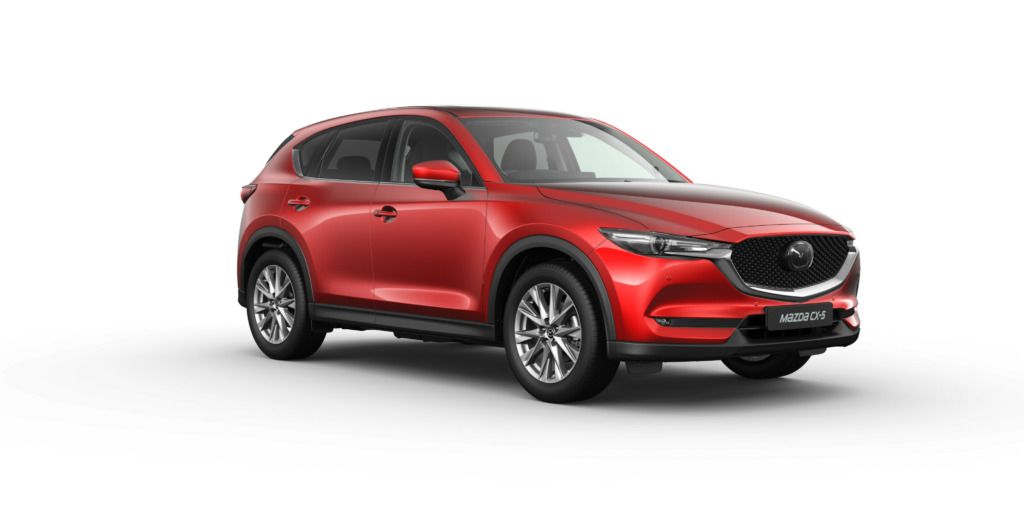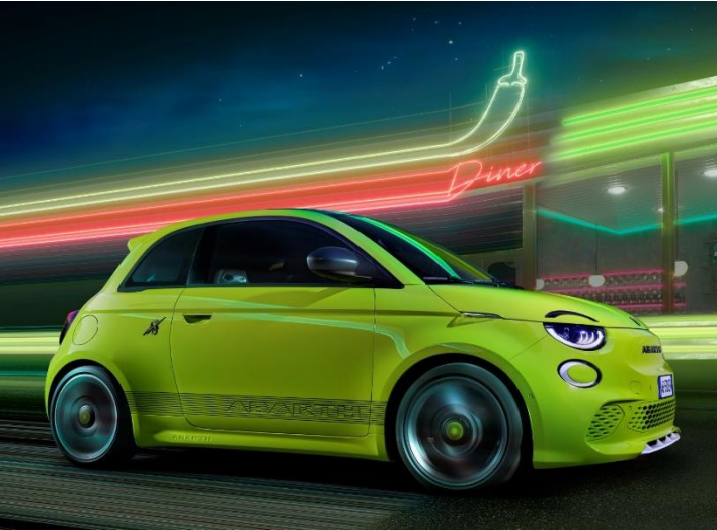The second generation version of the Mazda CX-5 mid-sized SUV has been lightly improved, with mild hybrid tech added to the petrol engine range, delivering improved economy and lower emissions. As before, this model represents a good compromise between a Nissan Qashai-style family Crossover and a Toyota RAV4-style SUV. It does this by offering good driving dynamics, efficient running costs and decent practicality. This may not be the first car you consider in this sector, but try one and you might just think it to be the best.
Background
The CX-5 has proved to be a crucial car for Mazda. Launched in 2012 relatively early on in the current craze for mid-sized SUV and Crossover models, it’s since sold prodigiously. To the point where this model line now accounts for a quarter of all the Japanese brand’s global sales. Over 1.5 million CX-5s have been sold worldwide, with 32,000 examples having found UK owners.
Will those people continue to like this updated second generation version, now usefully revised? It’ll be interesting to see. There’s 24v Mazda M Hybrid mild-hybrid technology across all the petrol models and range of fresh higher-value trim designations. All of which this car will need to stay competitive in the face of crowded competition for sales of cars of this kind. Let’s judge this Mazda on its merits.
The Mazda CX-5 Driving Experience
Let’s cover what’s different with the lightly revised CX-5. The main change is the addition of 24v Mazda M Hybrid mild hybrid technology to the petrol engines. Which now both feature a cylinder deactivation system. There are two petrol powerplants on offer. In recent times, this engine has recently gained what Mazda calls ‘steering vibration counter-measures’. You can have a petrol-powered CX-5 that does have AWD. Though its a 2.5-litre 194PS SKYACTIV-G powerplant at the top of the range, which only comes in 4×4 form. As before, this diesel engine is offered with either 150 or 184PS forms, can be specified with auto transmission and (in 184PS form) with AWD.
A recent addition to the range is ‘Mazda Intelligent Drive select’ (‘Mi-Drive’). This enables the driver to select the most appropriate drive mode with one touch of a switch. Some model grades equipped with i-Activ AWD further benefit from an Off-Road Mode. This mode makes driving feel more natural on un-made and slippery surfaces. Mazda’s next generation of Skyactiv-Vehicle Architecture has now been applied to this mid-sized SUV. Further evolving the bodyshell, suspension and seats to enhance ride comfort and reduce fatigue. The brand also claims that road noise has been greatly reduced in more recent versions of this model. Particularly when driving on rough surfaces such as gravel.
Like many new-era Mazdas, this one’s a product of the company’s ‘Jinba-Ittai’ ‘car-and-driver-as-one’ philosophy. The philosophy being to deliver more focused levels of driver engagement and comfort. Further helping in this regard is a ‘GVC’ ‘G-Vectoring Control’ torque vectoring system that transfers traction to the wheel most needing it when you’re going at speed through tight corners.
And off road prowess? Well, as with the systems employed by most of its rivals, this car has a set-up so the torque is automatically split according to the terrain you’re on. This is so it can direct 100% of drive to the front wheels in normal conditions, with up to 50% then directed to the rear wheels if slip is detected.
The Mazda CX-5 Design and Build
Nothing much has changed with the look of this updated version of the second generation CX-5. The styling was tweaked as recently as early 2022, so you might not have caught up with those changes. Those saw the introduction of a revised more three-dimensional grille and signature wing design. Plus both front and rear lamp clusters were also updated. That was about it. But then, nothing much needed to change here: this CX-5 still looks pretty fresh. This MK2 model takes its cues from the stunning ‘RX Vision’ concept car the brand first displayed at the 2015 Tokyo Motor Show. There’s a sleek profile and a reatively low roofline that underscore this SUV’s solid stance and elegant proportions. Under the skin, the body structure has been created under the concept of what Mazda calls ‘Refined Toughness’.
Inside, there haven’t really been any significant recent changes apart from the addition of wireless ‘Apple CarPlay’ and ‘Andtroid Auto’ smartphone-mirroring. As well as a wireless Qi phone charging tray. The cabin had already been updated not long ago with a larger, faster and clearer 10.25-inch centre display screen. Also a more intuitive Mazda Connect Commander operation and an expanded range of Connected Services operable by the MyMazda App.
If you haven’t looked at this MK2 CX-5 since launch, you may also notice that it now includes LED interior lighting, a redesigned key and the availability of black half-leatherette seats on plusher variants. In terms of overall quality, the cabin finish is now almost up there with a rival Volkswagen Tiguan. It’s certainly an improvement over what you’d get in competitors like Ford’s Kuga and Kia’s Sportage. In the back, there’s plenty of legroom. This is despite the provision of a decently-sized 506-litre boot, extendable to 1,620-litres on retraction of the rear bench.
The Mazda CX-5 Market and Model
Prices range from £30,000 to £41,000. There are five trim levels – ‘Centre-Line’, Newground’, ‘Exclusive-Line’, ‘Homura’ and ‘Takumi’. And four engines, 2.0-litre 165PS and 2.5-litre 194PS petrol units and 150 and 184PS versions of the familiar 2.2-litre diesel.
You’ll probably want to progress beyond base ‘Centre-Line’ trim. The next level up is the ‘Newground’ version. Which features a more rugged look with front and rear silver underguard trims matched to silver lower body side skirts, black door mirrors and 19-inch black diamond cut alloy wheels.
If you can afford more, ‘Homura’ trim gets you gloss black detailing on the wheel arches, side moldings, door mirrors and signature wing grille surround. Subtle red accents within the grille and 19-inch black alloy wheels finish the sporty look. While inside the black leather seats feature red stitching, which is also found around the cabin in areas like the door trim, centre console and steering wheel. At the top of the range, ‘Takumi’ trim gets you brown Nappa leather upholstery and genuine woodgrain trim.
The CX-5 gets a full rosta of active safety equipment as standard. Including ‘Cruising & Traffic Support’, which helps reduce driver fatigue by assisting with accelerator, brake pedal and steering operations. All models get Mazda’s ‘Advanced Smart City Brake Support’ system, which incorporates night-time pedestrian detection. This Advanced SCBS set-up uses a forward-sensing camera to detect vehicles and pedestrians ahead and help avoid collisions. There’s also Mazda Radar Cruise Control, Advanced Blind Spot Monitoring with Rear Cross Traffic alert, High Beam Control and Lane Keep Assist with Lane Departure Warning standard across the range. In addition, the optional safety pack on ‘Sport’ models features a 360-degree view camera and Adaptive LED Headlamps.
The Cost of Owning a Mazda CX-5
Mazda claims that the introduction of its 24v ‘M Hybrid’ mild hybrid tech for this car’s petrol engines has made a significant difference, with an average CO2 reduction of 9g/km. That means CO2 figures start at 146g/km for a base-trimmed 165PS petrol model rising to 156g/km with plusher trim and bigger wheels. It’s 171g/km for the auto-only 194PS 2.5-litre AWD petrol model. Expect combined cycle economy in the 45-50mpg bracket.
What if you want to fuel from the black pump? Well the diesels don’t get the ‘M Hybrid’ tech, but they’re still pretty frugal. For the base front-driven 150PS diesel variant, CO2 readings start from 148g/km. For the 2.2 184PS AWD diesel version many will want, you’re looking at 44.8mpg for the manual (42.8mpg auto) and 165g/km (173g/km).
Clever use of low compression ratios for the SKYACTIV-G petrol and SKYACTIV-D diesel engines means that ignition takes longer, ensuring a better mixture of air and fuel. This approach also enables the engines to run with less mechanical stress. This allows the use of lighter weight materials, in turn meaning that the finished vehicle will need less energy. And no energy at all of course when it comes to a temporary stop. At that point in this Mazda’s case, an ‘i-stop’ engine stop/start system (the fastest-reacting set-up of its kind) will cut in. This will reduce fuel consumption by up to 10% all on its own.
BiK tax liability for all petrol and diesel models is in the 34-37% bracket. As for peace of mind, well given the reliability of Mazda products, you’d have thought the company might have wanted to improve upon its usual three year/60,000 mile package and take on the Korean brands. Not so. That familiar standard warranty remains in place for this car.
Summary
The CX-5 isn’t one of those cars that jumps out at you on first acquaintance. But as with many Mazdas, its modesty hides a product packed with innovation. The result is excellent packaging, strong economy and emissions and driving dynamics that are amongst the best in this sector. Add in a high specification and competitive pricing and you’ve a compelling proposition. Especially with the minor refinements made to this updated model.
In summary, what we’ve got here is yet another example of Mazda going its own way, doing things differently. Which means? Well something quite simple really. If you’re looking for a car of this kind, make sure you also try this one. If you are interested in the Mazda CX-5 enquire now.





